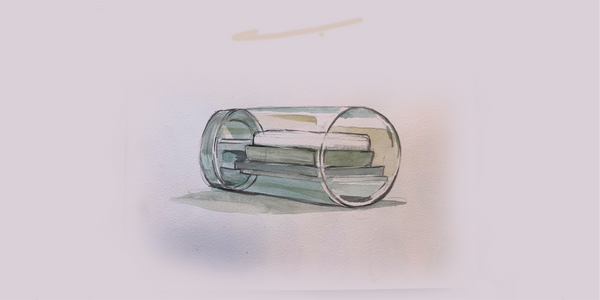Building the World's First Mycelium Biomaterial Research Platform

At Ecovative, we design and grow materials with mycelium. Discovering the many unique properties of fungi means doing a lot of testing. As the director of the Foundry Engineering team, my role is to pursue the vision and possibilities new biomaterials by developing tools for doing rigorous scientific research at scale. To that end, I lead a group of engineers and software developers in building a first-of-its-kind platform for inventing and fine-tuning a wide range of mycelium biomaterials. The Foundry is at the heart of Ecovative's innovation process.
At this point in Ecovative's growth, the focus is on scaling up. If we want to make a difference in the world, we have to make big moves quickly, but also carefully, and high throughput testing makes that possible. High throughput means we can run a lot of tests at once, or in parallel. By running hundreds of experimental 'recipes' simultaneously, feeding mycelium different nutrients and growing them in different conditions, we gain an understanding of how to control the aesthetics and the performance of a material. This makes it possible to learn fast, create the highest quality raw materials, and grow them at ever bigger volumes. With the knowledge our Foundry gains this way, we can essentially ‘program’ mycelium to get the best results as quickly and inexpensively as possible.

Concept drawing of a BTBR testing chamber.
One of my team's latest high-throughput platforms is called the Bench Top Bioreactor, or BTBR for short. Designed as a series of small chambers filled with lots of sensors, they closely observe mycelium as it grows. Arrays of these chambers are what allow us to perform high throughput testing of mycelium for material applications.
Our scientists also use machine learning software to assist in designing experiments that generate new insights, helping us to save time by testing various different recipes in the most efficient way. Say you want mycelium to grow to a particular density or elasticity. Based on feedback from previous tests, the software can, with human direction, suggest a series of recipes to try out. The successful tests from this process are then taken through a validation approach, that we can then take into the factory to grow amazing new mycelium materials at high volume.
Part of my training is in architecture, and I like to think of these reactors as small buildings, designed to house people but rather to study mycelium. Inside of them are micro climates, in a very meaningful sense, in which mycelium grows quite differently from how it would normally, say underneath the soil or inside the tree bark. The fungi interact with many experimental conditions, creating all kinds of beautiful and unexpected responses. Along the way, our platform observes the mycelium in real-time, collecting data to describe and understand its growth.

Side view of Ecovative's AirMycelium™ material.
I often like to remind the team that we — the scientists, engineers, machine learning algorithms and yes even mycelium — all learn something from one another in every experiment. The data feeds back into the software and lets it make new predictions about what else is possible. In a sense, we are all asking questions of one another.
Curiosity is natural to all humans. But as our needs grow, the biggest challenge facing us is learning how to scale equitably and sustainably in a resource-constrained world. Whether it is making renewable biomaterials, sustainable food production, or mitigating plastic and carbon pollution, these will all rely on forming new, reciprocal relationships with microorganisms. With BTBRs, we are working to establish that line of communication at the beginning of the process that leads to our mycelium materials and products.
I firmly believe that mycelium is one of the best mentors and allies in this endeavor. Among the Foundry Engineering team, with every tool we design, we try to bring together our technical imagination, scientific curiosity, and commitment to making high-quality products that everyone can afford.
The mycelium foundry's work depends on the input of brand partners who know the demands of their products and customers better than anyone. We are always looking to work with new collaborators to design the future of materials, and our team is growing, so take a look at our job openings, or reach out to learn more about Ecovative's technologies.



